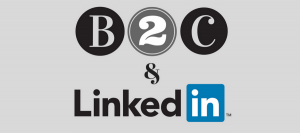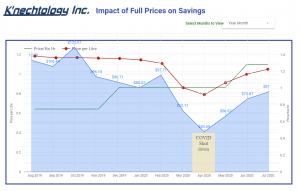
Google runs the Internet.
Now that we got that out of the way, we can finally except that we must abide by the Golden Rules that Google has laid out for us. There’s plenty of awesome articles explaining the things that people hate on your website. In fact, Lindsey Kolowich from HubSpot recently published 17 more things people absolutely hate about your website. Her informative post only inspired me to take my own twist on website malfunctions, but from Google’s standpoint.
7 Things Google Absolutely Hates About Your Website
Your website isn’t supported by an SEO-friendly CMS.
The most powerful websites are the ones supported by a powerful CMS. And because it’s no secret that Google loves WordPress, it might be a good idea for you to start loving WordPress too. (It’s also powerful enough to run enterprise-grade websites and it’s a top choice by many marketers today, too!)

It’s not mobile-friendly, either.
Let’s backtrack to April 2015 when Google announced their newest update, Mobilegeddon. You know, the one that (should) have scared everyone to get on the mobile bandwagon? Yeah, it’s still in effect and if your site isn’t mobile-friendly at the very least, there’s a good chance you’re not on Google’s “nice” list this year. Check your site’s mobile status here.
There’s no sitemap…
Your sitemap gives Google a list of the web pages of your site to allow them and other search engines to crawl and understand the organization of your site. Your sitemap provides the search engine web crawlers with an intelligent understanding of your website and the content placed in it.
…or robots.txt file
If you’re not familiar with robots.txt files, they are used to help tell search engines which pages and sections of your site you want them to ignore. If you create it incorrectly and accidentally disallow them from crawling major pages of your site (aka – the ones you want on your sitemap), you can hurt your organic visibility big time!
Your web pages are full of broken links, 404 pages, or temporary redirects.
Did you recently redesign your website? Did you omit pages from your old site? Did you make changes to the URL structure of some of your pages? If so, then these URL changes will result in 404 errors when the new site launches if they are not properly redirected. These have both SEO and usability repercussions and should be fixed ASAP! Also, make sure that you implement 301 permanent redirects rather than temporary redirects. Unlike 301 redirects, temporary redirects don’t pass any SEO value from one URL to another.
It’s missing Meta Descriptions and Alt-image text
Because Google is unable to “see” the images placed on your site, it relies on alt-image text to provide them with the information they need to understand what the image is and what the relevance of it is. When you use images on your site without including alt-image text, Google can’t crawl or “see” those images. However, when you do properly use them with your targeted keywords or a relevant description, Google cannot understand what the image is and will result in them not placing your content in the image section of the search engine.
Google also uses meta descriptions to understand the content of your web pages. It is also what users see when they look through the various results of their search query. Including a descriptive, keyword-rich, meta description allows both search engines web users to instantly understand what your website is about.
It’s filled with duplicate, thin and spammy content.
We know Content is King, so it’s shouldn’t be a surprise if your SEO firm is hounding you for content more and more. If you’ve been using outdated or “spammy” SEO methods in order to drive traffic to your brand new site, like paying for backlinks, you could end up being penalized by Google. Be sure to also steer clear from sneaky hidden pages and text that is colored the same as the background. It’s also worth running a quick audit of your current content to see if your website filled with thin, duplicate, or keyword-stuffed content. If so, it probably won’t perform well in search engines. Invest in continuous, quality content that offers value to your visitors.
What’s most important to take away from this, is the fact that you can no longer trick Google. Follow the rules they’ve provided and keep your rankings in check!
Digital & Social Articles on Business 2 Community(115)
Report Post




